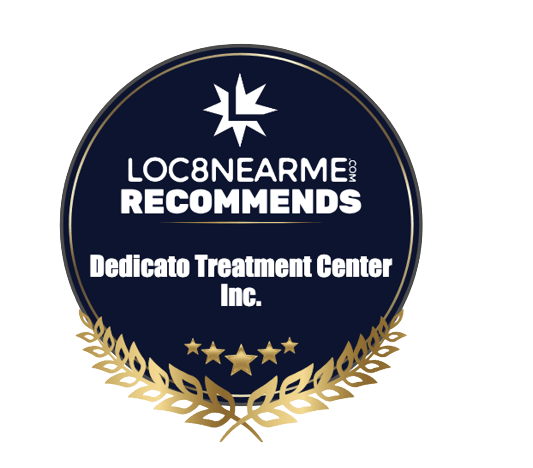When someone we love is struggling with addiction, it can be heartbreaking. We want to help, but sometimes we don’t know the best way. One of the most effective forms of care is an intensive outpatient program, also known as IOP. These programs allow people to receive treatment while still living at home and staying connected to daily life.
For families, learning how to support a loved one in IOP treatment is very important. Recovery is not just about the person getting therapy—it’s also about the support system around them. This guide will explain what IOP is, how it works, and how families can play a powerful role in their loved one’s healing journey.
What Is an Intensive Outpatient Program?
An intensive outpatient program (IOP) is a type of structured treatment for people dealing with addiction or mental health struggles. Unlike inpatient programs, where patients live at a rehab center, IOPs allow people to live at home while attending therapy sessions several times a week.
This balance makes IOP a good choice for people who:
- Need strong support but not 24-hour supervision
- Want to continue working, going to school, or caring for family.
- Are stepping down after finishing inpatient rehab
- Are starting treatment for the first time, but still have stability at home
How do IOP Services Work?
IOP services usually include a combination of therapies and activities that help people build healthier lives. Common parts of an IOP for addiction recovery include:
- Individual Therapy: One-on-one sessions with a counselor to work on personal struggles.
- Group Therapy: Talking and sharing with others who are also in recovery.
- Family Therapy: Sessions where loved ones join to improve communication and rebuild trust.
- Skills Training: Learning coping strategies, stress management, and relapse prevention.
- Medication Support (if needed): Doctors may prescribe safe medicines to help with withdrawal or mental health.
In cities like Pasadena, IOP therapy programs often also include holistic activities such as mindfulness, art therapy, or yoga to support whole-body healing.
Also Read: How Long Does IOP Last? A Week-by-Week Guide for First-Timers
Why Families Are So Important in IOP Treatment?
Addiction affects more than just one person—it impacts the entire family. That’s why families are considered partners in recovery. When families are involved, people in IOP tend to do better, stay in treatment longer, and build stronger habits for long-term success.
Here are some reasons family support matters:
- Emotional Encouragement: Recovery can feel lonely. Knowing the family is there gives strength.
- Practical Help: Loved ones may need rides to therapy or help keeping up with daily responsibilities.
- Accountability: Families can gently remind and motivate their loved one to stay committed.
- Healing Together: Addiction can strain relationships, but IOP services often provide space for everyone to heal.
Signs That a Loved One May Benefit from IOP
Not sure if IOP is right for your loved one? Here are some common signs that someone might benefit from IOP treatment:
- They struggle with addiction but don’t need 24-hour rehab care.
- They’ve finished inpatient rehab and need continued support.
- They want to recover but must keep working or caring for family.
- They have a strong support system at home.
- They show motivation to change and attend therapy.
If these signs sound familiar, IOP may be a great fit.
Family Guide to IOP: How to Support a Loved One
Supporting someone in an intensive outpatient program takes patience, love, and understanding. Here are practical tips for families:
1. Learn About IOP
The first step is understanding how an intensive outpatient program works. Attend family sessions, ask questions, and read about the program. The more you know, the better you can support your loved one.
2. Communicate With Care
Open and kind communication is key. Instead of blaming or criticizing, try phrases like:
- “I’m proud of you for choosing IOP.”
- “I’m here if you need to talk.”
- “What can I do to help today?”
3. Respect Their Routine
IOP therapy has a set schedule. Respecting therapy times shows support and commitment. Avoid scheduling family events or tasks that conflict with their treatment hours.
4. Encourage Healthy Habits
Support your loved one by encouraging simple, positive habits:
- Eating balanced meals
- Exercising or walking together
- Getting enough sleep
- Avoiding triggers such as alcohol at family gatherings
5. Be Patient with Ups and Downs
Recovery is not a straight path. There will be good days and tough days. Celebrate small wins, like attending all therapy sessions for the week, and stay supportive during setbacks.
6. Attend Family Therapy
Most IOP services include family sessions. These are valuable for learning how to rebuild trust, set healthy boundaries, and communicate better.
7. Avoid Triggers at Home
Home should be a safe place. Remove or avoid things that may trigger relapse, like alcohol, drugs, or toxic relationships.
8. Take Care of Yourself Too
Caring for someone in recovery can be exhausting. Families should also practice self-care, whether that means talking to a counselor, joining a support group, or simply taking time to rest.
How Does IOP Therapy Pasadena Support Families?
If you live in or near Pasadena, you’ll find many centers that offer IOP therapy Pasadena. These programs often focus not just on the individual but also on family healing. Some unique benefits include:
- Family Workshops: Teaching families how to support recovery.
- Community Resources: Local groups and events where families connect with others on the same journey.
- Relapse Prevention Education: Training for families on how to recognize warning signs and respond calmly.
- Holistic Options: Yoga, art therapy, and mindfulness classes that families can sometimes join, too.
The Role of Love and Support in IOP
IOP treatment works best when people feel supported, not judged. Families play a huge role in creating an environment where recovery feels safe. By showing love, offering patience, and staying involved, families give their loved ones the strength to keep going.
Think of recovery like building a house. The person in treatment lays the bricks, but the family helps hold the walls steady until the foundation is strong.
Everyday Things Families Can Do
Here are some small but powerful ways families can help day to day:
- Drive your loved one to therapy if needed.
- Cook a healthy meal together after sessions.
- Celebrate milestones, like 30 days in IOP.
- Remind them to use coping tools learned in therapy.
- Be a safe space where they can talk without fear of judgment.
These actions may feel small, but they add up to a huge difference in recovery.
How to Know If IOP Is Working?
Families may wonder, “Is this really helping?” Signs that IOP for addiction recovery is working include:
- Fewer angry outbursts or conflicts
- Improved mood and energy
- More honesty and openness
- Stronger relationships with family members
- Reduced cravings or substance use
- Commitment to attending therapy
Remember, progress can be slow, but even small steps forward are worth celebrating.
Final Thoughts: Families and IOP
Addiction recovery is not something anyone should go through alone. With the help of an intensive outpatient program and the love and encouragement of family, lasting recovery is possible.
This family guide to IOP shows that supporting a loved one is about patience, kindness, and teamwork. By learning, communicating, and staying involved, families can give their loved one the strength to heal and build a new future.
Whether you’re looking for IOP services in your community or considering IOP therapy in Pasadena, know that hope is within reach. Recovery is a journey, and with the right support, every step brings your loved one closer to a healthier, happier life.
















